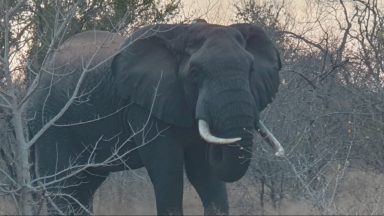Even just the faintest whisper of the word ‘snake’ sends a shiver down most people’s spine, but when sharing your home with these scaled reptiles, like many Peace Parks teams living in remote conservation areas in southern Africa, it is important to be ‘snake-aware’. This means being able to correctly identify the snakes and understanding their behaviour to avoid risks to both parties.
In Sioma Ngwezi National Park’s headquarters, a Peace Parks team comes across various jars containing preserved snakes. These snakes vary from some of Zambia’s more harmless species, such as the spotted bush snake, to the highly venomous black mamba and boomslang. All the preserved snakes seen in the video above died of natural causes and are now being used for educational purposes to create snake awareness amongst local school children and communities.
In many areas throughout Africa where the human population is growing and wild spaces need to be shared, human-wildlife conflict is an issue that conservationists increasingly need to address. Unfortunately, the reality is that the bad reputation that snakes suffer most often comes from a place of misunderstanding or ignorance.
Snakes play a vital role in the environment and are a natural form of pest control, keeping rodent populations in check. They also help create balance in the ecosystem as they serve as a food source for many large birds and predators. Yet, despite these benefits, snakes face many challenges such as habitat destruction, persecution and the exotic wildlife trade to the extent that several snake species have come under severe threat.
Learning to love snakes might be a tall order for many, but thanks to people like the Sioma Ngwezi team that creates awareness about snakes’ important role in nature and how important it is to protect them, they have a real chance of survival.

